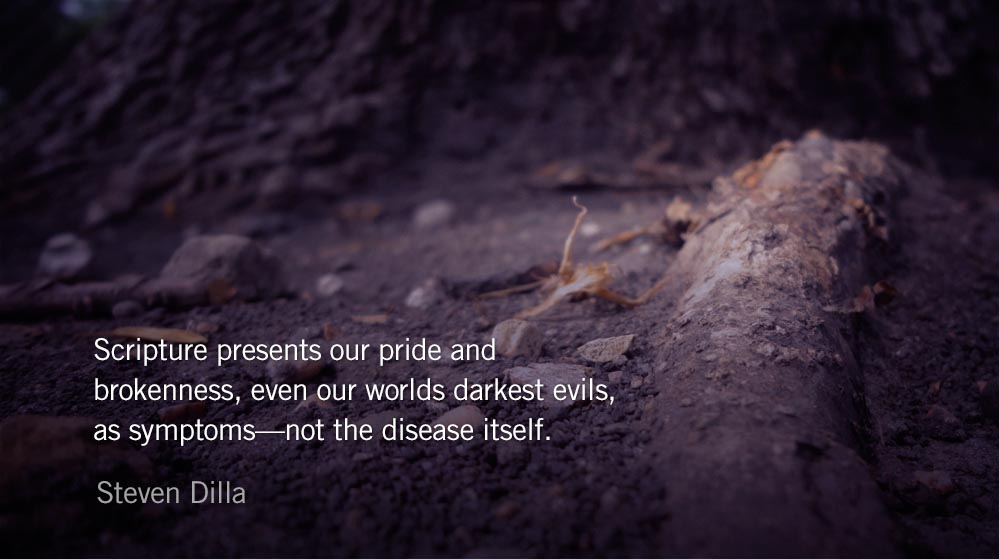“She will bear a son, and you shall call his name Jesus, for he will save his people from their sins.” — Matthew 1.21
“There was much Jewish expectation of a Messiah who would ‘redeem’ Israel from Roman tyranny and even purify his people, whether by fiat or appeal to law,’ observes author Don Carson. “But there was no expectation that the Davidic Messiah would give his own life as a ransom to save his people from their sins.”
In our spiritual longings we search for inner stillness, relief from suffering, global peace, divine blessing long before we look for salvation from sins. Far from being unconcerned with these things, Christ cuts to the root. Carson explains:
The verb ‘save’ can refer to deliverance from physical danger, disease, or even death; in the New Testament it commonly refers to the comprehensive salvation inaugurated by Jesus that will be consummated at his return.
Here it focuses on what is central: salvation from sins—for in the biblical perspective sin is the basic (if not always the immediate) cause of all other calamities.
Because we live in a materialistic world we search for material solutions: are there evil people? There must be something on their genome we can manipulate before they’re born to prevent them from being evil. Is there suffering in the world? There must be an action government or business can take to remediate it.
Scripture presents our pride and brokenness, even our worlds darkest evils, as symptoms—not the disease itself. In his exploration of Jesus and the Old Testament theologian John Goldingay concludes:
Understanding the Old Testament story in the light of the Christ event highlights for us that concern with the spiritual liberation of the spiritually oppressed which is present in the exodus story itself and which becomes more pressing as the Old Testament story unfolds.
Any concern with political and social liberation that does not recognize spiritual liberation as the more fundamental human problem has failed to take account of the development of the Old Testament story after the exodus via the exile to Christ’s coming and his work of atonement.
Far from showing disregard for our physical suffering under present evil, Christ humbles himself to suffer with us, presents himself as the sufficient solution for all evil, and provides himself as the hope that one day all that has been lost in suffering will be returned.
Today’s Reading
Isaiah 53 (Listen – 2:39)
Matthew 1 (Listen – 3:29)






